One man’s journey from poverty to global cloud data leader and why he says AI must work for humanity
Amit Walia is one of many Indian-born CEOs to have taken Silicon Valley by storm but his impoverished origins and rise is down to taking that first risky step.
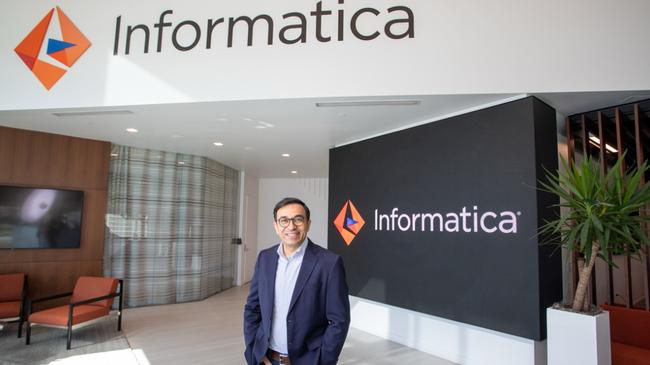
The bustling Indian city of Lucknow, the capital of Uttar Pradesh state, has long been a melting pot of art, culture, cuisine and architecture.
Today less than 15 per cent of its citizens live in poverty.
Growing up, Amit Walia was one of the unlucky few.
“We grew up poor. We did not have any privilege. Nothing. We did not even have television and my mum used to cook on a manual, handmade stove,” he now recalls.
But Walia’s parents, Prem and Pummi, gave him a gift that changed his life.
“Somehow my parents never made me feel poor,” he says proudly, noting his mother always pushed him and his brother, who is now a colonel in the Indian armed forces, to achieve.
Fast forward to today, Walia is chief executive of a giant global cloud data management company called Informatica, which drives the data engines of some of the world’s largest companies, including more than 80 of the Fortune 100 in America.
Walia is one a number of CEOs of Indian origin who have taken the tech world by storm over the past decade, led by Microsoft chairman and chief Satya Nadella, and Alphabet chief Sundar Pichai.
Yet as tech leader he has never forgotten the lessons of his youth.
“I say to my own teams, ‘You can’t change the set-up you were born into, it is what you do with that hand. There is no point sitting around wasting time dwelling on it’,” he snaps.
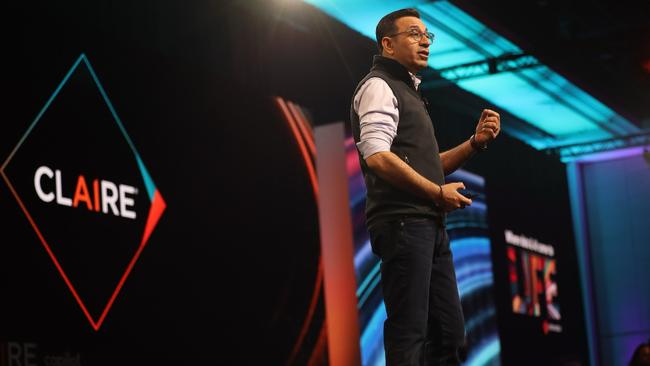
“Hence what gets to me sometimes is when people brood over things, thinking ‘Oh my gosh, this situation is so bad’. There is no point wasting a second on that topic.”
In Australia, Informatica has worked for decades with private and public sector companies and institutions such as Hastings, NRMA, P&N Bank, the Mater Hospital, and universities like La Trobe, Monash University and the University of Sydney.
Walia says that so far this year, the local operations are ahead of their target metrics, but he still feels that the Australian and New Zealand markets are, in cricket parlance, “in the first innings of a five-day game”.
“We are investing more resources in the region. We are the leader in data management in Australia. But the potential of the local economy is so big,” he says.
Walia championed artificial intelligence (AI) long before the generative AI hype. Now he believes that AI is “tremendously over-hyped” in the short term but “underestimated in the long term”.
“All the great changes – internet, mobile, social – disappointed in round one. We need to give a technology space and time. We need to be patient. It will be transformational in terms of growing businesses and to do things better, smarter and faster,” he says.
“There is so much mundane work that we don’t do properly and waste precious human time on it.
Large companies are short of people and most of their good people are wasted on doing mundane work.”
But he also stresses we must always be sceptical about the technology; its job is to work for humanity, not to take control of it.
Theatrical lessons for life
Growing up, Walia dreamt of being a doctor in the Indian defence forces.
But during his school years he developed a passion for maths and for his tertiary studies, and he earned a bachelor of technology degree from the renowned Indian Institute of Technology, Varanasi.
It was while performing in theatre as a youth that helped set him on a transformation path from being a self-confessed introvert to a global leader.
Walia says that in addition to teaching him “not to screw up” because “in acting, you only get one shot”, playing roles on stage also taught him to understand another person’s perspective in business.
“We may all be in the tech business, but we are also in the people business and the more you walk in somebody else’s shoes and have empathy for where they are coming from, the better,” he says.
“I might agree or disagree with you, but at least I can empathise and have a conversation. Given the role I am now in, where I deal with so many stakeholders, you have to constantly appreciate where they are coming from. Acting certainly has helped me in that.”
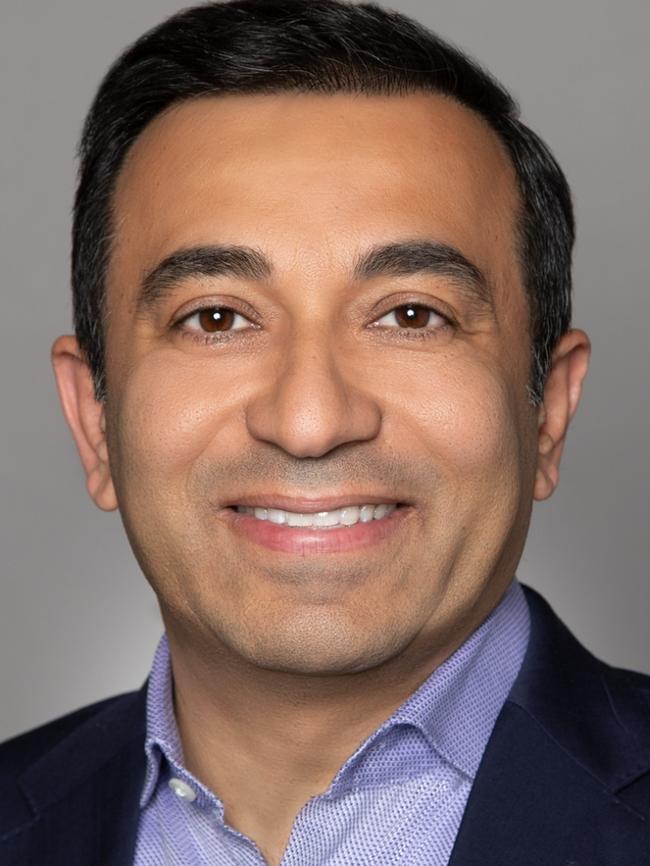
In 1995 at the age of 22, his first job out of university was working for the steel division of the giant Tata Group on the shop floor of one of its Indian plants, which put him a collision course with the union officials at the site.
There he says he won them over by learning to lead from the heart and being transparent with people.
He then worked for Infosys Technologies in India before making the biggest decision of his life in 1998, to move to America to follow his sweetheart named Awartika, who he met during his undergraduate studies.
She moved to the US to do her masters degree and settled in the city of Cincinnati, Ohio. Keen to go to business school in Chicago, Walia landed in the town of Sear Rapids, Iowa, 500 miles from Cincinnati.
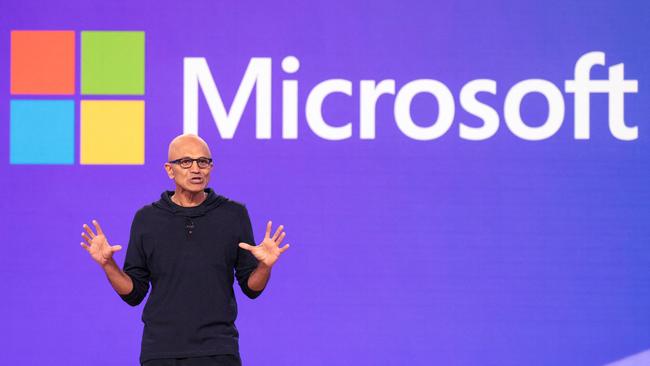
“I was nervous because when I landed in America, I didn’t know the country. Whatever I knew about the US was from movies. I actually landed in the Midwest, which I thought was great. But it was difficult for me. I had no money,” he says.
“Awartika was truly a rock. She was the only person in the US I knew. We would try to meet on long weekends, when we used to take the bus and go to the mall and spend time there eating cheap food. She stood by me.”
Walia achieved his dream of going to business school when he was accepted to study for an MBA in strategy, finance and economics from the prestigious Kellogg School of Management at Northwestern University near Chicago.
During the spring break of his third year in 2000, he and Awartika returned to India to be married. When they came back to America, she started her first day in a new job and her new husband resumed his studies.
“We found a way to get there. I had to take out loans to pay for my MBA and we had to find some creative ways to get through. But she was the one who was my true emotional support,” he says.
“I did not even know how to cook. I would pick up the phone and call her, and she would talk me through how to cook a meal. I would not have gone to business school if it was not for her and I would not be in the position I am today without her.”
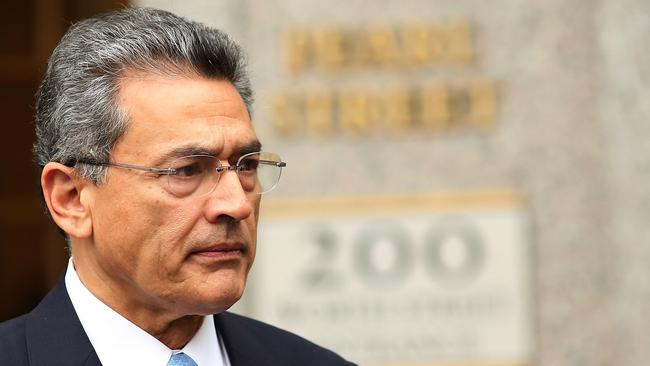
During his final year at Kellogg, Walia heard the news that Rajat Gupta had been made chief executive of McKinsey & Company, the first ever non-white male to run the legendary global consulting giant.
Working at McKinsey had been Walia’s dream since the senior year of his undergraduate degree. He loved the thought of doing different projects for different clients and had done a summer internship with the firm.
When he graduated from Kellogg in 2001, he received an offer to join McKinsey as a senior engagement manager and worked there for the next four-and-a-half years.
He will then never forget sitting in one meeting while a young business analyst was talking incessantly, throwing around ideas.
“But I was suddenly frozen for an entire hour. I did not have a single idea,” Walia recalls.
“My manager pulled me aside after the meeting and told me the importance of speaking up, whether it’s a bad idea or not.
“Most of the things that were being said, they were in my head, but I just could not put words to them because I just wanted to say what was right. But the right thing happens over a period of time.
“That’s how we build products now. We don’t think of building this perfect product 10 years out. We build something, put it out there, get feedback from our customers, bring it back in, fix it, then put it out again.”
A values-driven approach
Walia’s values-driven approach to management has resulted in Informatica being recognised as one of the best companies to work for in America. Today he talks to his staff about what he calls the “three whys of leadership”.
The first is having clarity of vision and purpose. The second is having true empathy for people.
“But my definition of that is ‘Don’t take my niceness as my weakness’,” he declares.
“I can be dogmatic about getting something wrong, but you can still do it with respect and love.”
Thirdly, he believes a good leader has no shame in learning from mistakes and making mistakes. “Then a smart leader learns from someone else’s mistakes,” he says.
Asked about his biggest mistakes, Walia says two stand out like beacons.
The first was not moving faster when he became Informatica chief executive in 2020.
The firm announced a restructure in January 2023 to deal with its unsustainable cost structure, but Walia now says he didn’t cut deep enough.
As a result he was forced to lay off another 500 employees, or 10 per cent of the staff, in November of that year, despite reporting robust third-quarter numbers.
“It is unfair to the organisation that you have to do it twice. I wish I had just done it once,” he says.
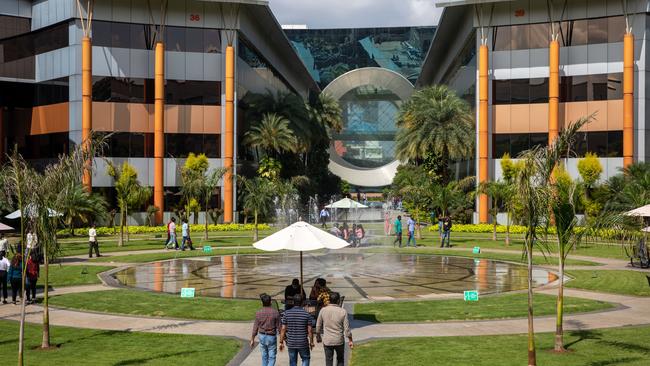
The second mistake, he says, relates to his family. There is a long pause before he eventually reveals it.
“I wish I was there more for my loved ones,” he laments softly. He and his wife have two sons who are now 20 and 17.
“It is a hard job and you basically don’t have a down moment. The most precious thing we have is time. There are loved ones I wish I had given more time to.”
Walia has always cared deeply about his parents and looked after them financially for many years. He saw it as his duty as their child, as he believes they did their duty to him as parents.
“But in a strange way, I don’t think my father or my mother understood what a CEO means when I got the job at Informatica, which I love. I find it so cute. They had no concept of that,” he muses.
One of the most difficult moments of his life came last year when his father died in India at the age of 85 after ongoing battles with a heart condition and cancer.
“I was supposed to be in my home city to meet my dad on a Saturday, and he passed away on the previous Wednesday,” he recalls.
“I was going to be there, it was all set up to go. If only he had stayed on for three more days it could have happened, I would have been there. So I carry that.”
Today his father’s framed portrait is proudly displayed on the shelf of Informatica’s Redwood City headquarters in San Francisco’s Bay Area.
“He was old and it was old age. In hindsight, the time had come for him. I think he lived a full life. He lived a happy life,” Walia says softly.
“I’m sure he’s watching from somewhere and still has his blessings all over me.”




To join the conversation, please log in. Don't have an account? Register
Join the conversation, you are commenting as Logout